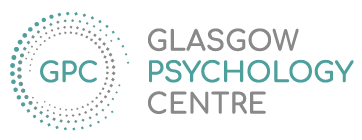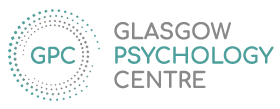Attention-Deficit/Hyperactivity Disorder (ADHD)
What is ADHD?
Attention-deficit/hyperactivity disorder (ADHD) is a condition marked by ongoing patterns of inattention and/or hyperactivity-impulsivity that interfere with functioning or development. People with ADHD experience a consistent pattern of symptoms in the following areas:
- Inattention: Difficulty staying on task, sustaining focus, and staying organised. These issues are not due to defiance or lack of understanding.
- Hyperactivity: Constant movement, even in inappropriate situations, or excessive fidgeting, tapping, or talking. In adults, this may appear as extreme restlessness or excessive talking.
- Impulsivity: Acting without thinking or having difficulty with self-control. This can include a desire for immediate rewards or an inability to delay gratification, interrupting others, or making hasty decisions without considering long-term consequences.

Signs & Symptoms of ADHD
ADHD symptoms vary from person to person and can include either difficulty with paying attention, hyperactivity-impulsivity, or both. These symptoms can also vary in intensity and often interfere with social, academic, or work functioning.
Inattention
- Difficulty getting started on tasks and procrastinating for long periods.
- Overlook details and make careless mistakes in schoolwork, work, or other activities.
- Have difficulty sustaining attention in tasks or play, such as conversations, lectures, or reading.
- Seem not to listen when spoken to directly.
- Struggle to follow through on instructions or finish tasks.
- Have trouble organising tasks and activities, keeping things in order, managing time, and meeting deadlines.
- Avoid tasks that require sustained mental effort, like homework or lengthy paperwork.
- Lose things necessary for tasks, such as school supplies, books, tools, keys, or mobile phones.
- Be easily distracted by unrelated thoughts or stimuli.
- Be forgetful in daily activities, such as chores, errands, returning calls, or keeping appointments.
Hyperactivity-Impulsivity
- Fidget and squirm when seated.
- Leave their seat in situations where staying seated is expected, like in a classroom or office.
- Run or climb in inappropriate situations; in teens and adults, this may manifest as restlessness.
- Be unable to play or engage in hobbies quietly.
- Be constantly in motion or act as if driven by a motor.
- Talk excessively.
- Answer questions before they are fully asked, finish other people’s sentences, or speak out of turn in conversations.
- Have difficulty waiting for their turn.
- Interrupt or intrude on others, such as in conversations, games, or activities.
Diagnosing & Treating ADHD
Primary care providers such as GPs are not usually able to diagnose and treat ADHD. More usually they will refer their patients to a specialist mental health professional, such as a psychiatrist or psychologist, who will complete a thorough evaluation. Unfortunately, waiting times within the NHS can be lengthy for a referral and so, increasingly, private sector assessments are often pursued.
At Glasgow Psychology Centre each of our assessing psychologists are expert in the assessment of neurodivergence and have received appropriate specialist training as well as being highly experienced practitioners.
For an ADHD diagnosis to be offered:
- Symptoms of inattention and/or hyperactivity-impulsivity must be chronic or long-lasting and have been present prior to 12 years of age.
- Symptoms will impair day to day functioning and may result in falling behind typical development.
- Alternative explanations for symptoms such as stress, sleep disorders, anxiety, depression, and physical illnesses, must be considered and ruled out, as they can result in similar symptoms but require different treatment options.
Although symptoms of ADHD can appear from a very early age, children with ADHD are more usually diagnosed during their primary school years. Where symptoms are associated with inattention, difficulties can be less obvious and may go unnoticed by parents and teachers resulting in later diagnosis.
Neurodivergence can present itself differently across the genders, and girls and women may find it difficult to secure a diagnosis with their symptoms being attributed to other conditions such as anxiety or even personality disorders.
Managing ADHD
ADHD can be managed through a range of treatment options that typically include medication, cognitive behavioural therapy, or a combination of both, as well as lifestyle changes, psychological coaching and counselling.
Stimulant medications are often prescribed to help improve focus and reduce impulsivity as well as manage hyperactivity. Non-stimulant medications may also be effective, especially for individuals who do not respond well to stimulants. Behavioural therapy can play an important role in managing problematic symptoms, particularly for children, and often involves teaching coping strategies, time management and organisational skills.
Lifestyle modifications including a balanced diet, regular physical activity, and a structured daily routine, also play a role in managing symptoms.
When reporting on the outcome of your assessment, Glasgow Psychology Centre psychologists will provide a detailed report with recommendations tailored to your individual needs which is likely to include a number of specific treatment options.
If medication is a recommended treatment route, our psychologists can refer you to a specialist prescriber who will be able to ensure you are physically suitable for medication, take you through the initiation and titration of medication and provide appropriate follow up care. Once you are stabilised on medication, our preferred prescribers will also contact your GP to co-ordinate a Shared Care Agreement where your GP can take over prescribing of your medication needs should you wish.
Understanding ADHD Over Time
ADHD symptoms can change with age. In young children, hyperactivity-impulsivity is often the most noticeable symptom. As children enter primary school, inattention may become more prominent, leading to academic struggles. In adolescence, hyperactivity may decrease, but symptoms like restlessness, inattention, and impulsivity often persist. Adolescents with ADHD may also struggle with relationships and antisocial behaviours. Many adults with undiagnosed ADHD may have histories of poor academic performance, work problems, or difficult relationships.
With a combination of the most appropriate treatment options, symptoms of ADHD can be managed well and positive outcomes achieved for children as well as adults.


